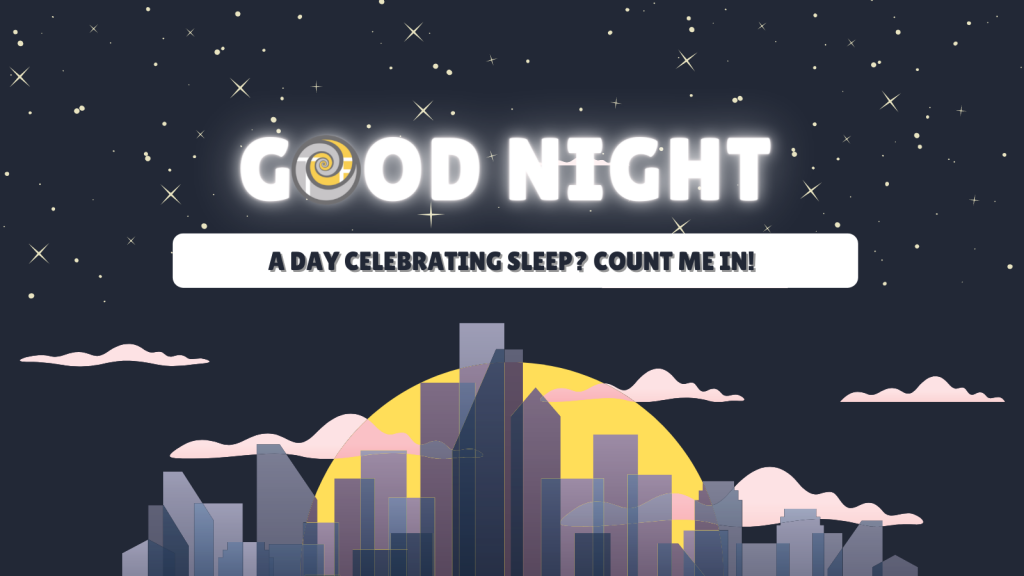Free relaxation track below!
World Sleep Day is on the 18th March…when napping is welcome! A day celebrating sleep?? Count me in!!
We spend about a third of our lives asleep!! Sleep is essential……it is as important to our bodies as eating, drinking and breathing, and is vital for maintaining good mental and physical health. Sleeping helps us also to recover from mental as well as physical exertion.
Sleep and health are strongly related – poor sleep can increase the risk of having poor health, and poor health can make it harder to sleep. Sleep disturbances can be one of the first signs of distress with common mental health problems like anxiety and depression often underpinning sleep problems.
When you prioritise regular healthy sleep, you are not just investing in having a good day, but you are securing health benefits for the future, ranging from cognitive functions to hormone and cardiovascular regulations!
Achieve better, regular sleep
As you know your days are brighter after a good nights sleep, so give these tips a try and see how quickly it makes a difference:
- Create a regular go to bed and get up time, i.e. 11.00 p.m -7.00 a.m.
- No screens for an hour before bedtime (TV’s, Tablets, Phones). Your bed is for sleep and loving only.
- Create a bedtime routine and stick to it.
- No caffeine for four hours before bedtime.
- No high sugar foods or drinks for four hours before bedtime.
- Make your bedroom as dark as possible with thick curtains or ‘blackout’ blinds.
- Turn your bedside clock around so you cannot see the time. Don’t look at the time if you wake in the night, just trust that your alarm will wake you when it’s time to get up and if it’s not sounded then you can go back to sleep.
- If you have woken and are not able to drop back to sleep within a reasonable time and/or you start to get irritated, get up and make yourself a warm drink (not caffeinated). Milky drinks are good as they contain the enzyme Trytophan which can help create a sleepy feeling. Maybe read a little and then go back to bed.
- Take a few minutes in the daytime, everyday to relax. Meditation or self-hypnosis are great ways to do this. Even as little as 10 minutes a day can make the difference.
- Get active. Increase your physical activity during the day.
If sleep is still a problem a few weeks after trying the above then it may be worth seeking help. It is easier to get someone back on track if they take early action to resolve the problem.
Scan me


